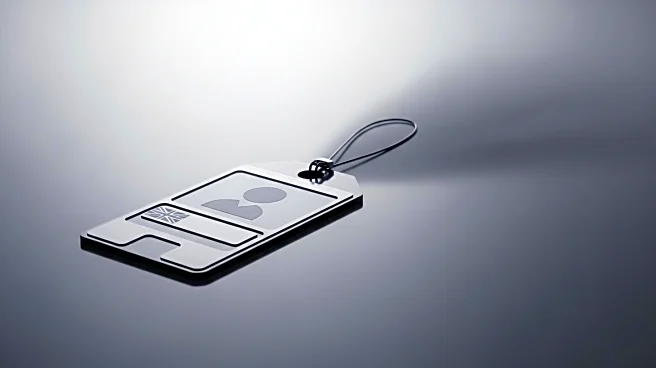What's Happening?
Researchers from the Georgia Institute of Technology have identified security vulnerabilities in Tile tracking tags, which are used by over 88 million people globally. The study reveals that these tags broadcast unencrypted MAC addresses and unique IDs, allowing tech-savvy individuals to track users' locations. This flaw contradicts Tile's claims about the security and privacy of its devices. The researchers also found that Tile's anti-stalking features can be easily bypassed, and the company has not adequately addressed these issues despite being informed last year. Tile's technology is embedded in various products, including laptops and smartwatches, raising concerns about widespread privacy risks.
Why It's Important?
The findings highlight significant privacy and security concerns for millions of Tile users. The ability to track individuals without their consent poses risks of stalking and unauthorized surveillance. This issue underscores the need for stronger security measures and transparency from companies that produce tracking technologies. The potential misuse of such devices could lead to legal challenges and calls for regulatory oversight. Consumers and manufacturers alike must prioritize data protection to prevent exploitation and maintain trust in technology.
What's Next?
In response to these findings, there may be increased pressure on Tile and similar companies to enhance their security protocols and provide clearer communication about privacy measures. Regulatory bodies could also step in to establish guidelines for the development and use of tracking technologies. Users may seek alternative solutions or demand more secure options, prompting innovation in the industry. The situation could also lead to broader discussions about digital privacy rights and the responsibilities of tech companies.
Beyond the Headlines
The vulnerabilities in Tile's tracking system raise ethical questions about the balance between convenience and privacy. As technology becomes more integrated into daily life, the potential for misuse increases, necessitating a reevaluation of ethical standards in tech development. This case may serve as a catalyst for broader industry changes, encouraging companies to adopt more rigorous security practices and prioritize user privacy in their product designs.









